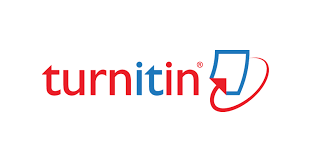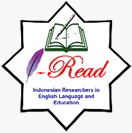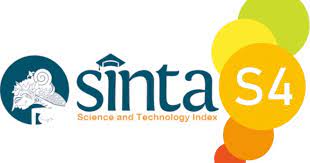About the Journal
Focus and Scope
This journal particularly highlights such themes as:
1. ELT in EFL and ESL context.
2. Curriculum and Material Development in ELT.
3. Language Assessment.
4. Computer-assisted Language Learning (CALL).
5. International and Intercultural Communication.
6. Innovation in English for Young Learners (EYL).
Peer Review Process
English Learning Innovation, a peer-reviewed open-access journal, has committed to promoting integrity and responsible conduct in both research and publication process. These ethical guidelines refer to Elsevier's recommendations and COPE's Best Practice Guidelines for Journal Editors. The following statements clarify the ethical behaviour of all parties involved in the act of publishing a manuscript in this journal, including the author, the reviewer, the journal editor, and the publisher.
Universitas Muhammadiyah Malang as the publisher of English Learning Innovation is highly responsive to its duties of guardianship over all stages of publishing as precisely defined on publication ethics. We are committed to ensuring that advertising, reprinting, or other commercial revenues have no impact on editorial decisions. In addition,English Language Education Department-Postgraduate Program, Universitas Muhammadiyah Malang, and the Editorial Board may assist further communication with other journals and/or publishers where this is both useful and essential.
Publication Frequency
English Learning Innovation publishes two issues per year, in February and August annually.
Open Access Policy
This journal provides immediate open access to its content on the principle that making research freely available to the public supports a greater global exchange of knowledge.
Plagiarism Policy
Please note that englie published by Universitas Muhammadiyah Malang to screen papers for unoriginal material. By submitting an article for publication to English Learning Innovation, authors are agreeing to originality checks using Turnitin software.

Plagiarism constitutes a serious form of scientific misconduct and is unacceptable. Plagiarism policy is clearly defined as follows:
- Plagiarism and self-plagiarism are not allowed.
- The authors should ensure that they have written entirely original works, and if the authors have used the work and/or words of others that this has been appropriately cited or quoted.
- An author should not, in general, publish manuscripts describing essentially the same research in more than one journal or primary publication. Submitting the same manuscript to more than one journal concurrently constitutes unethical publishing behaviour and is unacceptable.
- Proper acknowledgement of the work of others must always be given. Authors should cite publications that have been influential in determining the nature of the reported work.
The managing editor will decide whether to immediately reject the manuscripts, contact authors for further clarification or proceed to the blind peer-review process, depending on the level of originality and similarities with other documents. However, when a serious plagiarized work is identified by the Plagiarism Checker (using Turnitin software), the manuscript is automatically rejected and the authors are forbidden to submit further articles to the journal.
Article Fee
englie does not require the author any submission and publication fees for this journal.
Ethics
Publication decisions
The editorial board of the English Learning Innovation (englie) is responsible for deciding which of the articles submitted to the journal should be published. These decisions must always be driven from the validation of the work in question, its importance to researchers and readers, and its contribution to the body of scientific knowledge. The editor may be guided by the policies of the journal's editorial board and constrained by such legal requirements as shall then be in force regarding libel, copyright infringement and plagiarism. The editor may confer with other editors or reviewers in making this decision.
Fair play
The editorial board shall fairly review the quality of the manuscript and whether it conforms to the submission guidelines and review standards. Manuscripts are to be assessed objectively, regardless of race, gender, age, institutional affiliation and/or other personal factors. Decisions to approve or reject a manuscript shall be based on the submission 's importance, originality, consistency and relevance of the work.
Confidentiality
The editor and any editorial staff shall not, as necessary, reveal any information about a submitted manuscript to anyone other than the corresponding author, reviewers, potential reviewers, other editorial advisors, and the publisher.
Disclosure and conflicts of interest
Unpublished materials disclosed in a submitted manuscript should not be used in an editor's own research without the express written consent of the author.
Duties of reviewers
Contribution to editorial decisions
Peer review assists the editor in making editorial decisions and may also help the author improve the paper through editorial communications with the author. Peer review is an essential component of formal scholarly communication and is at the heart of the scientific method.
Promptness
Any selected referee who feels unqualified to review the work mentioned in a manuscript or who knows it would be difficult to review it promptly should inform the editor and withdraw himself from the review process.
Confidentiality
Any manuscript provided for review shall be considered as confidential. They are not to be shown or shared with others except as approved by the editor.
Standards of objectivity
Reviews have to be conducted with an objective, fair, constructive and confidential manners. Personal criticism is considered as inappropriate. Referees should clearly express their views with justifiable supporting arguments.
Acknowledgement of sources
Reviewers should identify specifically published research which the authors have not cited. Any statement previously reported of observation, derivation, or argument should be accompanied by the relevant citation. A reviewer should call the attention of the editor to any significant similarities or overlap between the manuscript being reviewed and any other published paper they have personal knowledge of.
Disclosure and conflict of interest
Unpublished materials disclosed in a submitted manuscript should not be used in a reviewer's own research without the express written consent of the author. Privileged information or ideas obtained by peer review shall be kept confidential and shall not be used for personal advantages. Reviewers do not accept publications in which they have conflicts of interest with any of the authors, companies, or institutions connected to the study.
Duties of authors
Reporting standards
Authors of original research reports should present an accurate account of the work undertaken, as well as an objective explanation of its significance. The underlying data should be accurately represented in the paper. A paper should contain sufficient detail and references to allow replication of the research by others. Fraudulent or intentionally misleading claims constitute unethical behaviour and are unacceptable. Review and professional publication articles should also be accurate and objective, and editorial 'opinion' works should be clearly identified as such.
Data access and retention
Authors will be required to provide the raw data in connection with an editorial review paper and should be prepared, in any case, to maintain such data for a reasonable period after publication.
Originality and plagiarism
Authors must be responsible for and recognized only for their own work. The author should ensure that they have published entirely original works and that this has been properly referenced or quoted if they have used the work and/or words of others.
Multiple, redundant or concurrent publication
In general, an author shall assure his original work and should not publish his manuscripts in more than one journal or primary publication that describe essentially the same research. Submitting the same manuscript to more than one journal at the same time constitutes and is unacceptable unethical publishing behaviour. An author should not submit a previously published paper to be considered in another journal.
Acknowledgement of sources
Authors must put proper acknowledgement when citing the work of others. During the process of research or writing articles, confidential information which is obtained privately such as in conversation, correspondence, or discussion with third parties should remain secret or may be used only under the given permission from the source.
Authorship of the paper
Authorship should be limited to those who have made a significant contribution in designing and conducting the research or in interpreting the reported study. All authors are listed based on the order of their significance. All those who have contributed substantially to the work including writing of the manuscript should be classified as authors; those who have taken part in substantive aspects of the research project should be mentioned in acknowledgement or listed as contributors. The corresponding author should take primary responsibility for the final version of the paper and build communication with ENGLIE during the manuscript submission, peer review, and publication process.
Hazards and human or animal subjects
If the work involves humans, animals, procedures, or equipment that have any unusual hazards inherent in their use, these must be clearly defined by the author in the manuscript.
Disclosure and conflicts of interest
All authors should disclose any financial or other substantive conflicts of interest in their manuscript that could be construed to influence the outcomes or interpretation of their manuscript. They are required to report all sources of funding or financial support for the project.
Fundamental errors in published works
When an author discovers a significant error or inaccuracy in his / her own published work, it is the author's responsibility to inform the journal editor or publisher immediately and to comply with the editor in retracting or correcting the article. If the editor or publisher discovers from a third party that a published work involves a significant error, it is the author's obligation to immediately retract or correct the paper or supply the editor with evidence of the original paper's correctness.
Index

Sponsors
Universitas Muhammadiyah Malang
















1.png)












